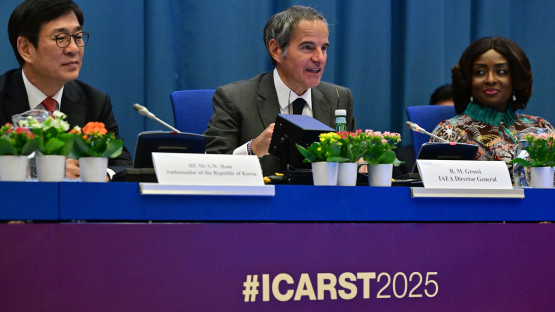Experts in the use of radiation technologies are gathering in Vienna to discuss innovative applications in aeronautics, recycling, climate monitoring and more.
Have you ever wondered how the wings of an aeroplane are checked to ensure they are safe, without taking them apart? Why medical products undergo irradiation? Or how radiation can help turn plastic waste into new, high value products like floor tiles?
Advancements in exciting topics like these will be highlighted at the IAEA’s Third International Conference on Applications of Radiation Science and Technology (#ICARST2025), which started in Vienna today.
“Radiation technology improves lives every day—from safer food and medical tools to cleaner environments,” said IAEA Director General Rafael Mariano Grossi, who opened the event.
"It sterilizes half of all medical equipment, protects food from parasites and spoilage, and can even help beat plastic pollution," he added. "Yet, in many places, access to these tools is still limited. To change that, we must tackle barriers in infrastructure, awareness, and financing—so no country is left out."








